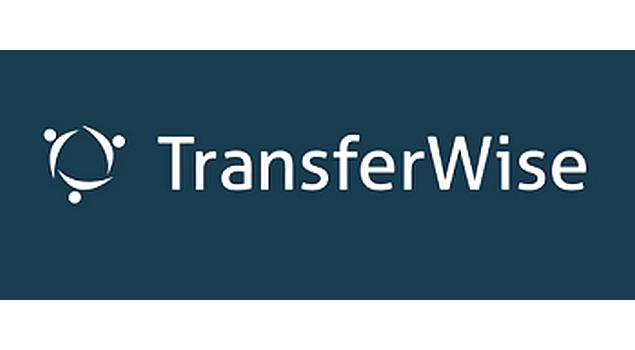- Home
- Internet
- Internet News
- Transferwise looking to offer services for the Indian rupee
Transferwise looking to offer services for the Indian rupee

"Hey, hidden fees. Your secret's out," taunts the site founded by Taavet Hinrikus, 32, and partner Kristo Kaarmann, 33.
Transferwise has been giving banks a run for their money since its 2011 launch, even attracting applause from tycoon Richard Branson, who sings its praises as a low cost business tool for start-ups.
"They are dramatically lowering the cost of transferring money overseas, by effectively matching people and companies in different countries who want the opposite currency," the Virgin billionaire said in a recent blog post.
The marriage of IT ingenuity and financial savvy also garnered a prestigious 2013 World Summit Award (WSA), a United Nations-backed prize for outstanding web-based business innovations.
Transferwise offers international money transfers for a fee of just one British pound (1.2 euros, $1.6) for all transfers under £200 and 0.5 percent for everything above -- a tenth of what banks typically charge.
At that price, business is booming with the company processing around £1 million per day.
While European rules specify that euro to euro transfers must be free of charge, banks fees on international money transfers between currencies range between three and six percent with exchange rates that routinely favour banks.
The new platform boasts customers from across Europe and is most popular in Britain, France and Spain, mostly among working or retired expats plus small and medium-sized businesses looking to cut operating costs.
It's also eyeing expansion in Asia, Africa and the US, offering services for the Indian rupee, South African rand as well as US, Australian, Hong Kong and Singapore dollars.
Co-founder Hinrikus was Skype's director of strategy until 2008, where he joined as the first employee. Kaarmann worked as a consultant for banks with Deloitte and PricewaterhouseCoopers before setting up TransferWise.
Cashing-in on algorithms
The idea took shape when Hinrikus found himself living in London and spending in pounds, but earning euros at his job with Skype at its headquarters in his native Estonia.
Kaarmann, meanwhile was earning pounds in London, but paying a mortgage for his home in the Estonian capital Tallinn in euros.
"We found that we had the opposite currency requirements, so we started to exchange it among ourselves at the actual mid-market rate -- that's the exchange rate you see in the papers, not the inflated rate you'll be offered by your bank," Hinrikus told AFP.
"Soon we realised we had saved a fortune by not moving the money across borders and that perhaps it could be a big business idea. A few years later TransferWise was born," he added.
A few algorithms later, they had come up with the programming to connect people with complementary currency needs.
Hinrikus explains that a customer in Britain who wants to send money home to Estonia can put their pounds on a TransferWise account.
The company then spots a customer in Estonia who wants to send an equivalent amount of money to the UK.
Rather than actually sending the money across borders, TransferWise then simply pays it out to the desired recipient in each country, for the minimal fee.
While concerns have been raised over the potential abuse of the system to launder money, TransferWise spokeswoman Huggins points out the service is certified by Britain's Financial Conduct Authority (FCA).
"This means that the business is subject to the same rules as commercial banks in the UK," she explained.
The half-dozen TransferWise investors read like a who's who of IT venture capitalists.
PayPal founder and Facebook's first financier Peter Thiel is among them via his Valar Ventures company as is Xavier Niel, the founder of French communications provider Free.For the latest tech news and reviews, follow Gadgets 360 on X, Facebook, WhatsApp, Threads and Google News. For the latest videos on gadgets and tech, subscribe to our YouTube channel. If you want to know everything about top influencers, follow our in-house Who'sThat360 on Instagram and YouTube.
Related Stories
- Amazon Great Indian Festival 2024
- Big Billion Days 2024
- Apple Vision Pro
- Oneplus 12
- iPhone 14
- Apple iPhone 15
- OnePlus Nord CE 3 Lite 5G
- iPhone 13
- Xiaomi 14 Pro
- Oppo Find N3
- Tecno Spark Go (2023)
- Realme V30
- Best Phones Under 25000
- Samsung Galaxy S24 Series
- Cryptocurrency
- iQoo 12
- Samsung Galaxy S24 Ultra
- Giottus
- Samsung Galaxy Z Flip 5
- Apple 'Scary Fast'
- Housefull 5
- GoPro Hero 12 Black Review
- Invincible Season 2
- JioGlass
- HD Ready TV
- Laptop Under 50000
- Smartwatch Under 10000
- Latest Mobile Phones
- Compare Phones
- Honor Magic 7 Pro
- Honor Magic 7
- Sharp Aquos R9 Pro
- Xiaomi 15
- Xiaomi 15 Pro
- Redmi A3 Pro
- Poco C75
- Oppo A3x 4G
- Asus Zenbook S 14
- MacBook Pro 16-inch (M4 Max, 2024)
- Tecno Megapad 10
- Oppo Pad 3 Pro
- Xiaomi Smart Band 9 Pro
- Xiaomi Watch S4
- Sony 65 Inches Ultra HD (4K) LED Smart TV (KD-65X74L)
- TCL 55 Inches Ultra HD (4K) LED Smart TV (55C61B)
- Sony PlayStation 5 Pro
- Sony PlayStation 5 Slim Digital Edition
- Lloyd 2 Ton 3 Star Inverter Split AC (GLS24I3KWSEM)
- Haier 1.6 Ton 5 Star Inverter Split AC (HSU19K-PYS5B INV)

















